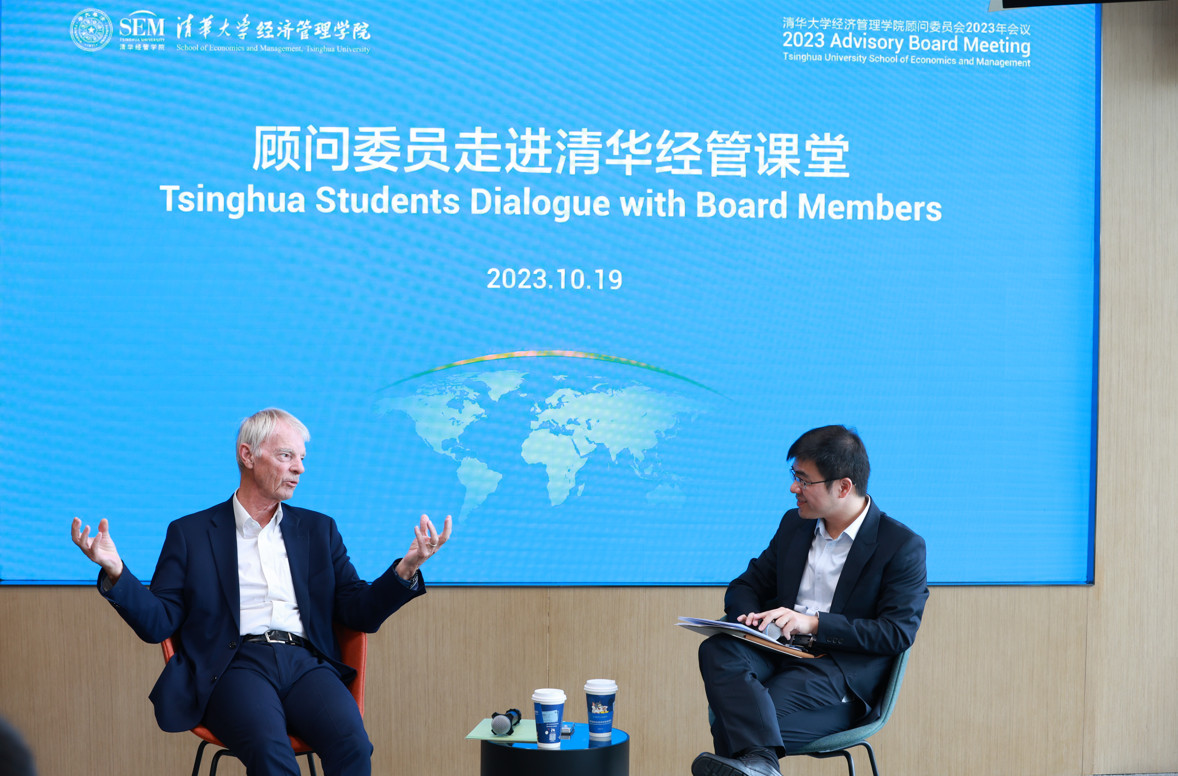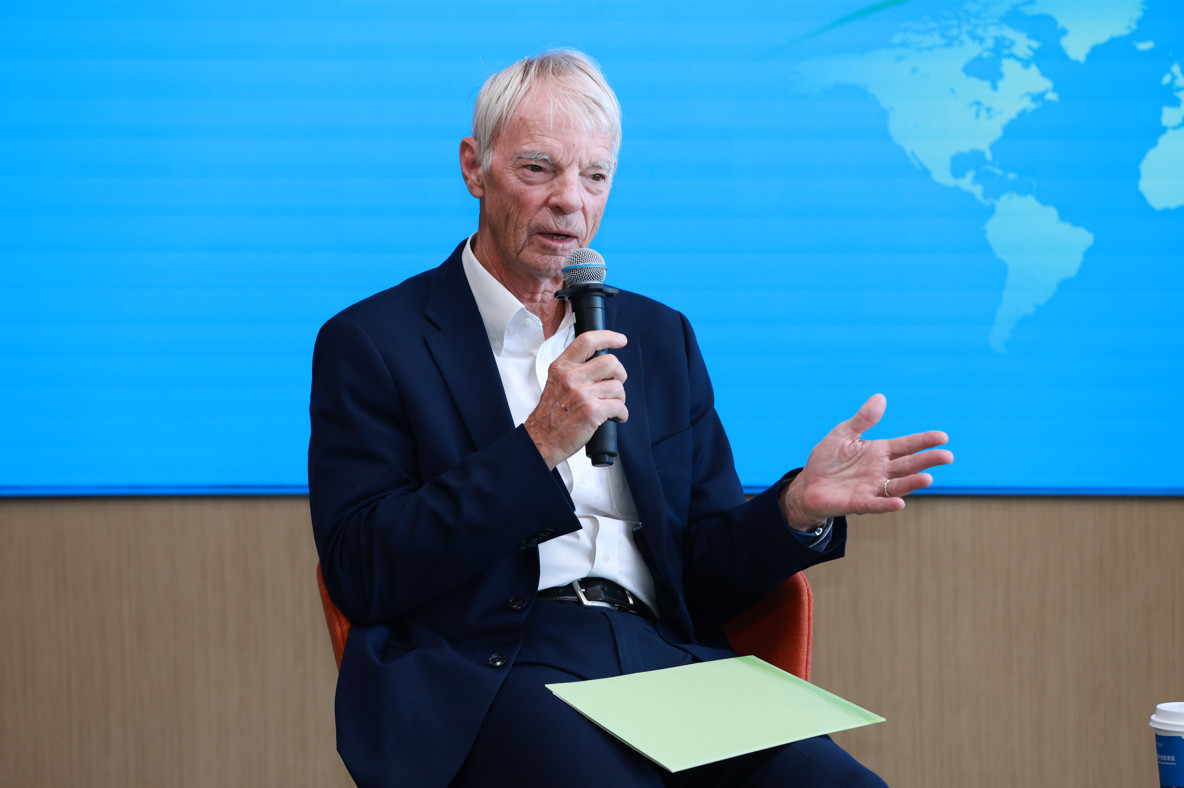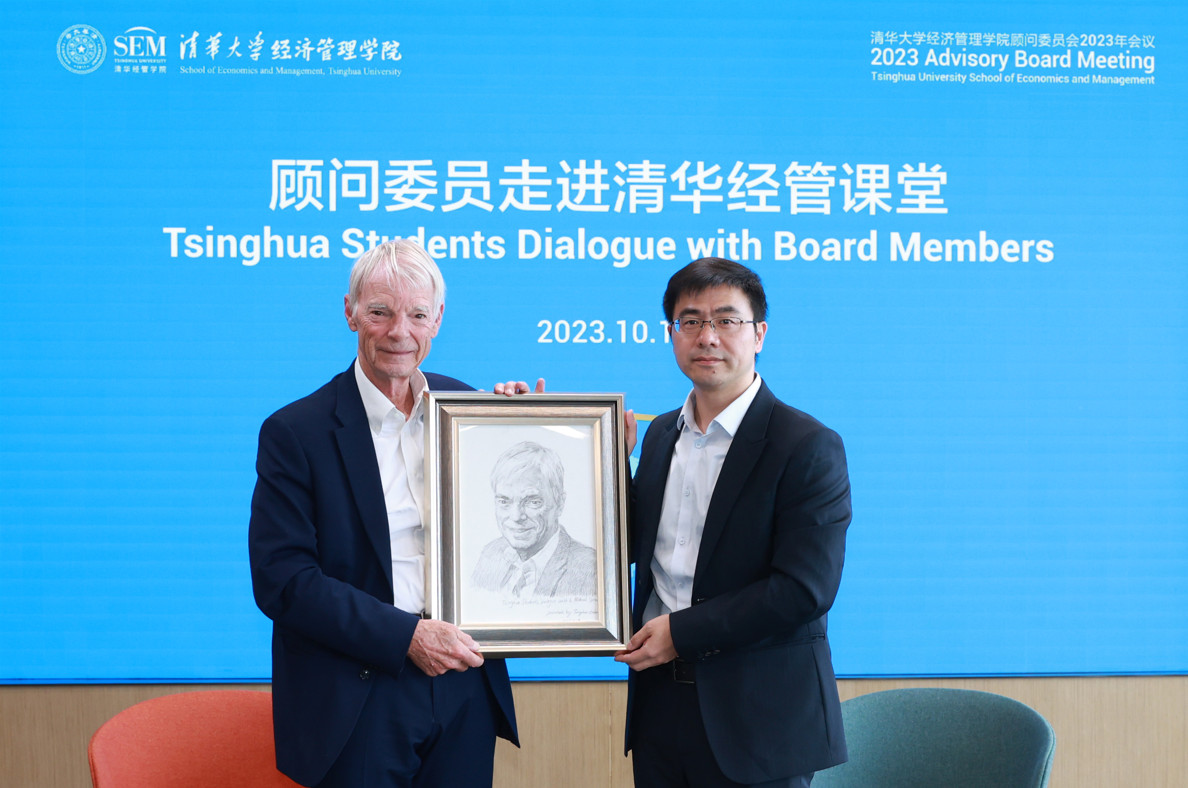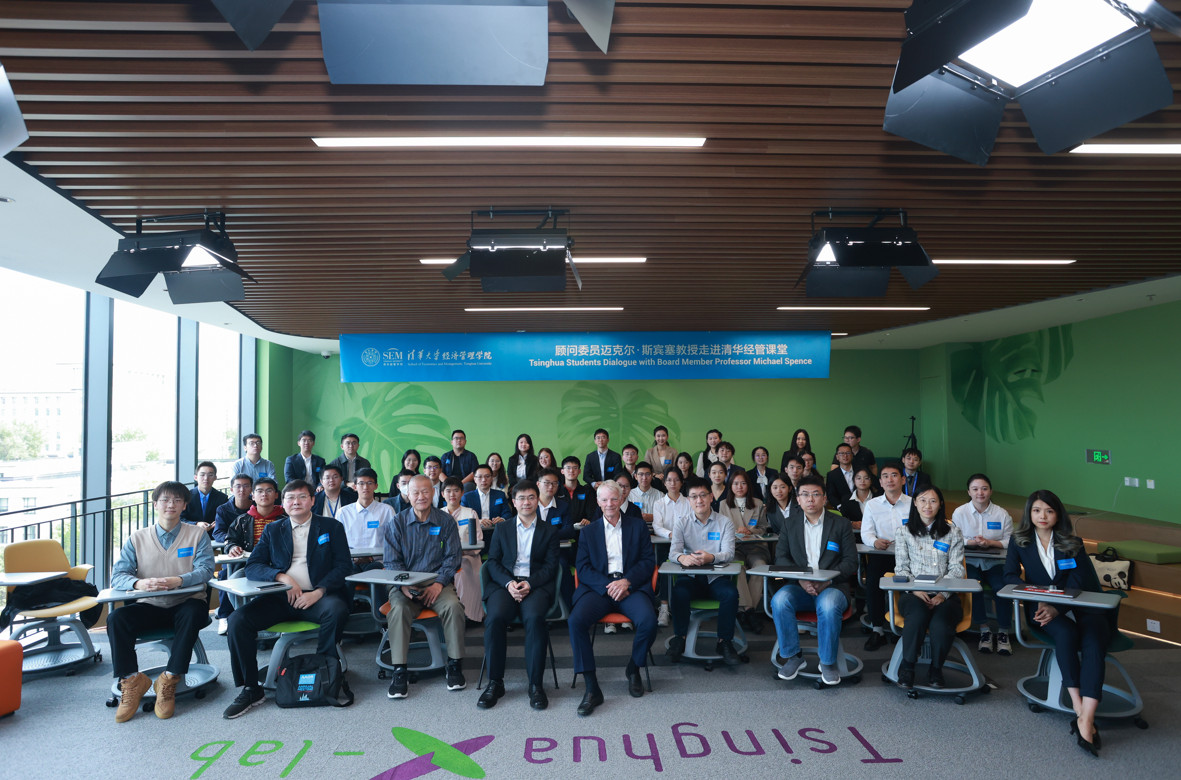Professor A. Michael Spence, a member of the advisory board at Tsinghua University School of Economics and Management (Tsinghua SEM), met with faculty and students for 90 minutes on October 19, 2023. Spence, who won the Nobel Prize in economics in 2001, shared his unique insight into the current world economy and artificial intelligence with more than 40 participants, including undergraduates, Ph.Ds and young faculty. Professor MA Hong, from the Department of Economics, hosted a question and answer session with Spence after the talk.

Professor Spence talks with Professor MA (right) at the Tsinghua Students Dialogue with Board Members activity.
Concerning the current status of the world economy, Spence said the following factors contribute to its sluggishness. Firstly, developed countries have entered a period of high inflation after a long period of low inflation, and the liquidity in financial markets has not translated into growth of the real economy. Secondly, the outbreak of the pandemic has narrowed the governments' fiscal space, and as a result, the pressure on developing countries to repay their sovereign debts has become apparent. Thirdly, the economic confrontation and decoupling between China and the US has changed the pattern of the world economy. Nevertheless, Spence said he remains optimistic about the prospects for the world economy, believing technological breakthroughs in fields such as life sciences and artificial intelligence will spur new economic growth.

A. Michael Spence at the Tsinghua Students Dialogue with Board Members activity
MA said Spence's previous work, "The Next Convergence," predicted that developing countries would grow at a faster rate, thus "converging" with developed countries. His new book Permacrisis points out the slowdown in growth in developing countries and proposes a new model. "What has led to a change in your opinion, and how do you view the growth prospects of developing countries?" MA asked. Spence said he still believes in the growth potential of developing countries. The current economic stagnation only means that the speed of convergence will slow down, but developing countries can still catch up. Nowadays, anti-globalization, populism, and emphasis on national security have made the economic prospects of developing countries seem bleak. But Spence said the risks of development are closely related to governance. Developing countries need "good" governance, whereas "bad" governance can cause countries to stagnate or even regress.
MA asked what crisis the popular neo-liberal economic growth model of the past 40 years is currently facing. Spence responded by discussing the "growth paradigm" debate. On the one hand, the market is better at allocating scarce resources than the government: the growth paradigm corresponding to this view is neo-liberalism. However, in order to address externalities, inequality, and sustainable development, the government needs to be highly involved in the economy: the growth paradigm corresponding to this view is the export-oriented East Asian model. In fact, there are many different growth paradigms available based on the relative importance of the market and government. Spence said all growth paradigms may be feasible - perhaps except for central planning. Whether the growth paradigm can support sustained economic growth does not depend on the growth paradigm itself, but on whether the government can effectively carry out "good" governance. However, in the era of the digital economy, what is "good" governance requires further thinking.
During his Ph.D studies, Spence started to research information asymmetry in the labor market. This research, completed during his Ph.D, became an important achievement for him to win the Nobel Prize in economics. When discussing the issue of how to discover valuable research topics, Spence said academic research faces a trade-off between the importance of research and the risk of publication. He is only willing to invest time in research that interests him, otherwise it would be better to switch research topics as soon as possible. Spence said academic research is only a journey for him to find his true interests.
Subsequently, Professor Spence had extensive and in-depth discussions with his classmates on topics such as China-US competition and the digital economy. Although Professor Spence emphasized the uncertainty of the world economy, he remained optimistic about its future. He said that as long as we adhere to "good" governance, the world economy can still emerge from the "Permacrisis" and usher in the "Next Convergence".

MA presents a sketched portrait to Spence.
After the event, Tsinghua University students presented Spence with a sketch drawn by a classmate from the Academy of Arts and Design at Tsinghua University. Teachers and students said their conversation with the Nobel laureate was very beneficial.

Group photo
Source: Academic Affairs Office
 Latest News
Latest News